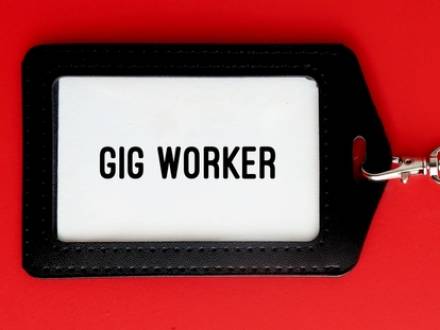Maryland’s "Tools of the Trade" Rule for Gig Workers
 Many Marylanders filing for bankruptcy today are not nine-to-fivers, factory workers, or farmers. This new group of workers works in the gig economy, driving for Uber, writing, editing, or creating websites from laptops at home, delivering DoorDash food orders, or managing any number of online side businesses.
Many Marylanders filing for bankruptcy today are not nine-to-fivers, factory workers, or farmers. This new group of workers works in the gig economy, driving for Uber, writing, editing, or creating websites from laptops at home, delivering DoorDash food orders, or managing any number of online side businesses.
Some use gig work as a supplement to their "regular" income, while others depend on this type of work to fully support them. Yet when these debtors file for bankruptcy, they depend on the same basic protections that once applied only to carpenters and tradesmen. This is the "Tools of the Trade" exemption under Maryland Code Section 11-504(b)(1).
In this modern era of remote work, self-employment, gig work, and digital hustles, what counts as "tools of the trade" is changing quickly, and Maryland courts are beginning to take notice. If you are a gig worker considering bankruptcy, you must speak with an experienced Silver Spring, MD consumer bankruptcy attorney.
Bankruptcy and Property Exemptions in Maryland
Some states allow bankruptcy filers to choose between federal and state exemptions, but Maryland is an "opt-out" state, meaning Maryland residents must use state exemptions. The purpose of exemptions is to allow bankruptcy filers a fresh financial start rather than stripping away their livelihood. Under the Maryland bankruptcy statute, "tools, instruments, or books," used in any trade or profession, are exempted up to the current $5,000 value.
What Does the Tools of the Trade Exemption Cover?
Traditionally, the tools of the trade bankruptcy exemption would cover mechanic’s tools, medical instruments, contractor equipment – actual, physical tools that allowed the individual to work and make a living. This might have covered hammers, nail guns, plumbing tools, electrical tools, bricklaying tools, wrenches, and other tools for mechanics, etc. The modern interpretation of tools of the trade might include:
- Laptops or desktop computers
- Editing software
- Printers or scanners
- Calculators for bookkeepers
- Cameras and photographic gear for photographers and videographers
- Musical instruments for working musicians
- A vehicle primarily used as a rideshare car or DoorDash delivery vehicle
Since the courts have not yet caught up with the gig worker economy, they will consider whether the item is primarily used to generate income or for personal convenience. A car that is used mainly for business will usually qualify; the value of the vehicle can be partially exempted, along with Maryland’s separate motor vehicle exemption. Freelancers and digital creators may be allowed to keep laptops, software, cameras, microphones, and other necessary items.
While cloud-based assets, software, and subscriptions to AI tools like Grammarly and Copyscape may have intangible value, they can still fall within the exemption reasoning. A freelance landscaper would likely be able to keep his or her landscaping tools, while a house cleaner would be able to keep vacuums and other similar tools.
How Do Courts and Trustees Evaluate Eligibility?
Bankruptcy courts and trustees will evaluate the frequency with which the tools are used. If they are used for regular, ongoing work, then that favors exemption. The debtor filing for bankruptcy must show that the item directly generates income; receipts, income tax Schedule C records, and mileage logs can strengthen a claim.
Tools of the trade must be personal, not corporate property, and the same item cannot be double-claimed under multiple exemptions, although the tools of the trade and wildcard exemptions can be combined to protect higher-value property. Vehicle and tools of the trade exemptions can be combined to protect a vehicle used for the business. Tools co-owned with a partner or spouse can be tricky, and debtors who are unable to show business use risk losing the exemption entirely.
Contact a Greenbelt, MD Chapter 7 Bankruptcy Lawyer
Many Maryland residents rely on multiple gigs to survive inflation and debts, and the courts are gradually expanding the definition of "tools of the trade" to reflect non-traditional occupations. A highly skilled Silver Spring, MD Chapter 13 bankruptcy attorney can help you document eligibility, strategically combine exemptions, and preserve your livelihood.
Attorney Bell is currently the chair of the National Bar Association’s Bankruptcy section. He has more than two decades of bankruptcy experience with a special focus on saving homes through bankruptcy. Call 301-614-0535 to schedule your free consumer bankruptcy consultation.






